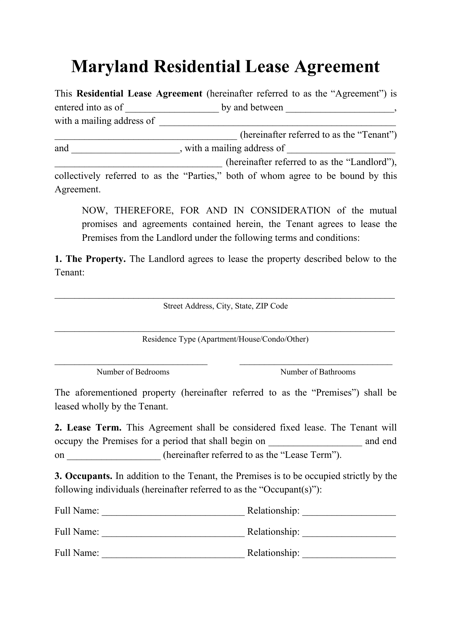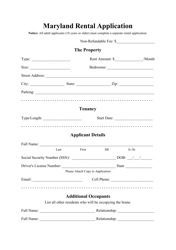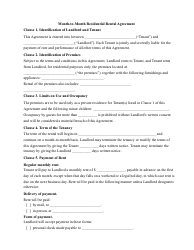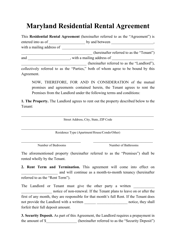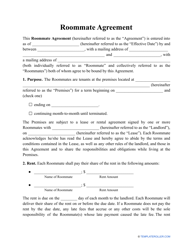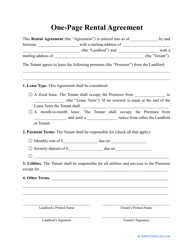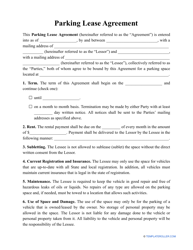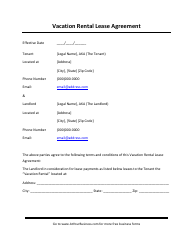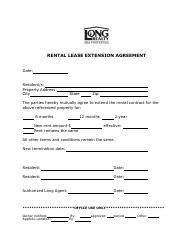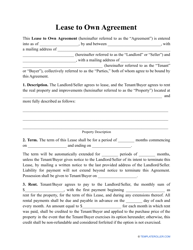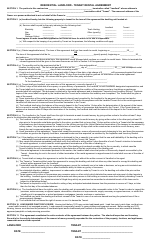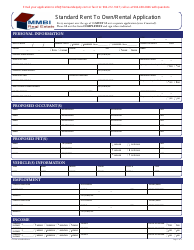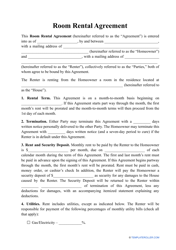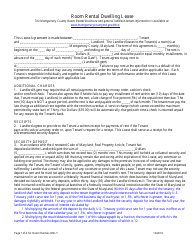Residential Lease Agreement Template - Maryland
A Residential Lease Agreement Template is a legal document that outlines the terms and conditions between a landlord and a tenant for renting a residential property in Maryland.
The residential lease agreement template in Maryland is typically filed by the landlord/owner of the property.
FAQ
Q: What is a residential lease agreement?
A: A residential lease agreement is a legal document that outlines the terms and conditions of a rental agreement between a landlord and a tenant.
Q: Why is a lease agreement important?
A: A lease agreement is important as it protects the rights and responsibilities of both the landlord and the tenant, ensuring a clear understanding of their obligations.
Q: What should be included in a residential lease agreement?
A: A residential lease agreement should include the names of the landlord and tenant, the property address, the duration of the lease, the monthly rent amount, and any specific terms and conditions.
Q: Is it necessary to have a written lease agreement?
A: While oral lease agreements are valid, having a written lease agreement provides stronger legal protection for both the landlord and tenant.
Q: How long is a typical residential lease?
A: A typical residential lease is often for one year, but the duration can vary depending on the agreement between the landlord and tenant.
Q: Can a lease agreement be terminated early?
A: Yes, a lease agreement can be terminated early if both parties agree or if specific circumstances, such as a breach of contract or military deployment, allow for early termination.
Q: Can a landlord increase the rent during the lease term?
A: In most cases, a landlord can only increase the rent during the lease term if there is a specific clause in the lease agreement that allows for rent increases.
Q: What happens if a tenant breaks the lease agreement?
A: If a tenant breaks the lease agreement, they may be responsible for paying any remaining rent, damages, or penalties outlined in the lease agreement.
Q: Do tenants need rental insurance?
A: While not required by law, it is highly recommended for tenants to have rental insurance to protect their personal belongings in case of theft, fire, or other unforeseen events.
Q: What are the rights and responsibilities of a landlord?
A: The rights and responsibilities of a landlord include providing a safe and habitable living environment, making necessary repairs, and respecting the privacy of the tenant.
Q: What are the rights and responsibilities of a tenant?
A: The rights and responsibilities of a tenant include paying rent on time, maintaining the rental property, and following any rules or regulations outlined in the lease agreement.
Q: Is a security deposit required?
A: In most cases, landlords require a security deposit from tenants to cover any damages or unpaid rent. The security deposit should be returned to the tenant at the end of the lease, minus any deductions for damages or unpaid rent.
